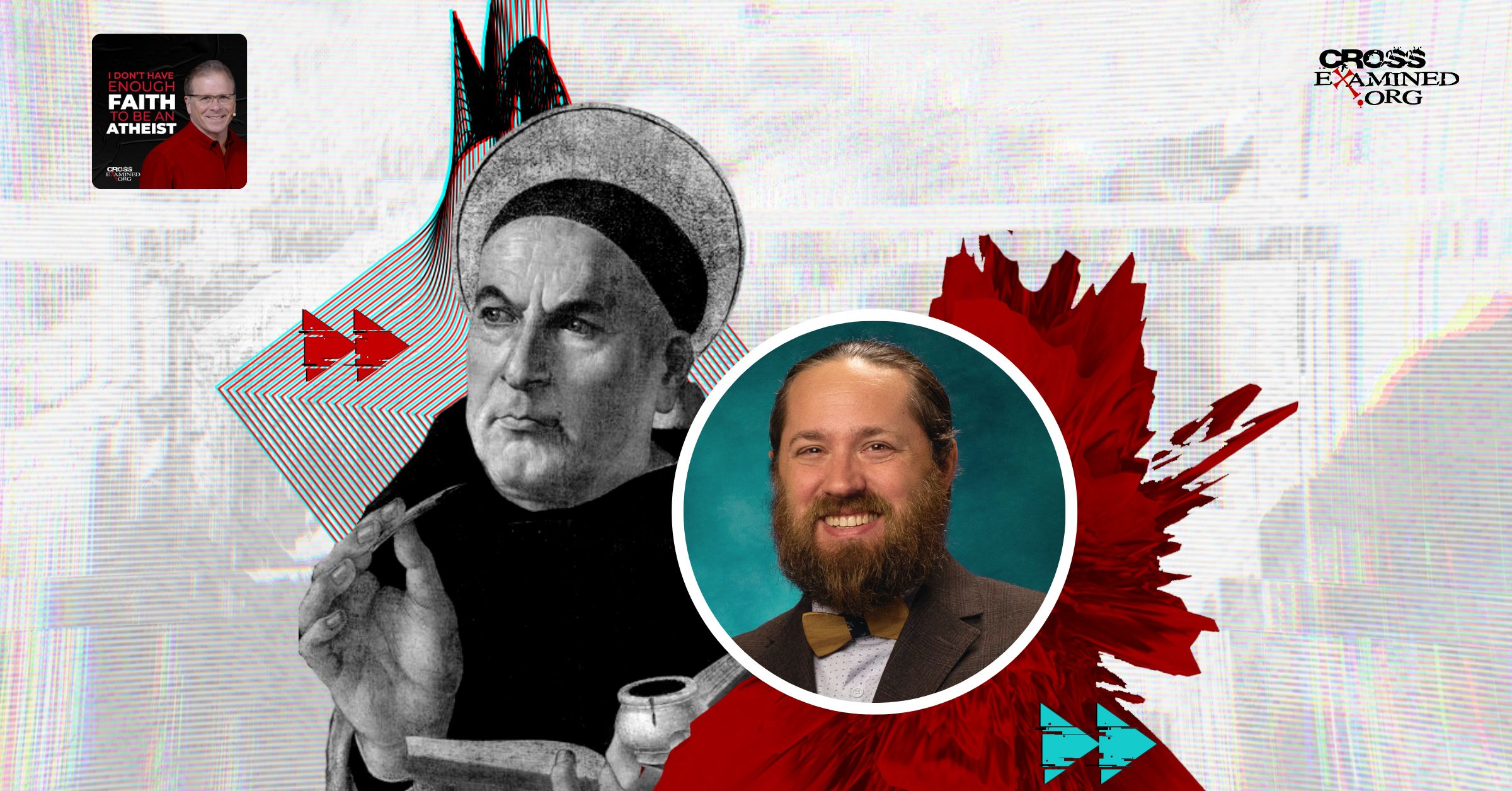Is it Hateful to Say Jesus is the Only Way?
Is it hateful or arrogant to claim that Jesus is the only way of salvation? Charles Templeton thought so. He argued:
“Christians are a small minority in the world. Approximately four out of every five people on the face of the earth believe in gods other than the Christian God. The more than five billion people who live on earth revere or worship more than three hundred gods. If one includes the animist or tribal religions, the number rises to more than three thousand. Are we to believe that only Christians are right?”[1]
What are we to make of Templeton’s claims? Is it presumptuous to say that Jesus is the one true way of salvation? Or even worse, are Christians guilty of committing “absurd religious chauvinism” as some put it?[2] These common refrains are the fundamental tenets of religious pluralism — the belief that all religions are essentially the same and lead to God.
In a culture that abhors dogmatic truth claims, should Christians heed the warnings of the religious pluralists and stop teaching that Jesus is the only way of salvation? I don’t think so for a couple of reasons. First, religious pluralism is a self-defeating proposition. It crumbles in the face of logical scrutiny. And second, pluralism ignores scientific and historical finding. Let’s explore both in turn.
Religious Pluralism is Self-Defeating
To support their claim, religious pluralists share the parable of the blind men and the elephant. The parable goes something like this:
There were five blind men who all encountered an elephant in a field. The first man grabbed the tail and said, “oh it’s a rope.” The second blind man touched a leg and asserted, “no, it’s a tree.” The third blind man grabbed the trunk and declared, “no, it’s a snake.” The fourth blind man grabbed a tusk and cried, “no, it’s a spear.” The fifth blind man touched its side and exclaimed, “no, it’s a wall.”
The pluralist argues that the blind men are like the different world religions. Each belief system naively thinks their view of reality is the correct one, but, in the end, they’re all misguided. Rather, all the religions are fundamentally the same and will ultimately lead to the same place. No single “right way” exists according to the pluralist.
The Religions Contradict Each Other
While pluralists like to mention that all religions teach essentially the same thing, nothing could be further from the truth. Let’s take, for example, the nature of God in each major religion. Hinduism acknowledges multitudes of gods that are one with creation. Buddhism, while extremely spiritual, does not worship a god. New Age spirituality teaches that each person should see themselves as god. Islam believes in one God, named Allah, who is transcendent above creation. Judaism believes in a transcendent God named Jehovah. Christianity teaches that God is triune in nature, and is both transcendent and immanent in his creation.
Let’s look at one more example — how each religion views Jesus of Nazareth. Hinduism, Buddhism, and New Age all say he was a wise, moral teacher. Islam teaches that he was a prophet, though not divine, and that he didn’t die on a cross. Judaism teaches that he was a false prophet who led many astray and was crucified for blasphemy. Christianity teaches that Jesus was divine, he died on a cross, and he rose again from the dead.
If space permitted me, I could also explain how each of these religions differ on creation, scripture, the nature of humanity, sin, salvation, and eternal life. In other words, these religions have almost nothing in common.
Pluralism Defies Logic
To say all religions teach the same thing commits all kinds of logical fallacies. For example, Christianity teaches that God is a Trinity. God, however, cannot be both a Trinity (Christianity) and not a Trinity (Hinduism, Buddhism, New Age, Islam, and Judaism) at the same time and in the same way.
This would violate the Law of Noncontradiction which teaches that a thing cannot be both A and non-A at the same time and in the same respect. To suggest, therefore, that all religions can be true about the nature of God violates one of the most fundamental laws of logic.
Or consider the nature of Jesus. It cannot be true that Jesus is God (Christianity) and not God (Hinduism, Buddhism, New Age, Islam, and Judaism) at the same time and in the same way. Again, this would violate the Law of Noncontradiction.
Pluralism Makes Exclusive Claims Too
Ironically, pluralists make exclusive claims themselves. In effect, they’re saying that pluralism is true, while all contrary religious claims are false. That is to say, pluralists are guilty of doing the very same thing that they chastise the other religions for doing.
Now that the shoe is on the other foot, should we say the pluralists are hateful for saying their view of reality is the right one while all of us naive religious folk are wrong?
Pluralism Ignores Scientific and Historical Facts
Now it’s one thing to say that all the different religions can’t be right. It’s another to claim that one of them is the truth. Strong evidence, though, points in the direction of Christianity.
Scientific Evidence
Consider the origin of the universe. All the scientific data suggests that space, time, and matter, all came into existence simultaneously a finite time ago. Meaning the cause of the universe must be spaceless, timeless, and immaterial.
This fits nicely with the Christian belief that God created the world out of nothing, but it contradicts pantheistic religions such as Hinduism which teach that god is one with the universe — bound by space, time, and material. Additionally, the scientific data that the universe came into existence a finite time ago contradicts Buddhism’s belief in an eternal/cyclical universe.
The scientific evidence leaves the theistic religions (Christianity, Judaism, Islam, and Deism) as possibilities. Yet when we turn our attention to Jesus of Nazareth, Christianity quickly rises to the top.
Historical Evidence
For example, ancient historians are unanimous that Jesus of Nazareth died by crucifixion in the first century. Islam, however, denies that Jesus — a prophet from God — was crucified. Since dozens of independent historical sources confirm Jesus’ death by crucifixion, we can be confident that Islam doesn’t pass the historical test as the one true religion. In fact, Jesus’ crucifixion is so certain that prominent skeptic scholar John Dominic Crossan admits, “Jesus’ death by crucifixion under Pontius Pilate is as sure as anything historical can ever be.”[3]
With only three viable options remaining, we turn our focus to the resurrection. Did Jesus rise again from the dead? If he did, Christianity is true, while Judaism and Deism are not. And we have lots of reasons to believe Jesus did, in fact, rise again. Let me give you two quick examples.
First, Christians claim that women were the first eye-witnesses to this incredible event. In a culture where nobody took a woman’s word seriously, it’s hard to imagine that Christians would have made up this detail. Since the early Christians would have had no motivation to make up this embarrassing fact, we have good reason to believe that this detail accurately portrays what really happened.
Additionally, Jesus’ closest followers were all willing to die for their belief that he rose again. Don’t you think, at some point, at least one of them would have caved under the threat of crucifixion or beheading and said the entire thing was a hoax? Yet not one of them did. This is telling, especially since those same disciples acted like cowards during Jesus’ arrest and crucifixion.
If Jesus rose again from the dead, that means what he claimed about himself has been vindicated — namely that he is God, and that he is the one true way of salvation.
Is it Hateful to Say Jesus Is the Only Way?
I don’t know anyone who would say that Jesus of Nazareth was hateful. Most actually affirm the exact opposite, he was incredibly moral and loving. Yet it’s this same Jesus who makes the claim that he is “the way, the truth, and the life. No one comes to the Father except through me” (John 14:6).
As we ponder the question at hand, consider the following statement by outspoken atheist and famed illusionist Penn Jillette:
“I’ve always said that I don’t respect people who don’t proselytize. I don’t respect that at all. If you believe that there’s a heaven and a hell, and people could be going to hell or not getting eternal life, and you think that it’s not really worth telling them this because it would make it socially awkward—and atheists who think people shouldn’t proselytize and who say just leave me alone and keep your religion to yourself—how much do you have to hate somebody to not proselytize? How much do you have to hate somebody to believe everlasting life is possible and not tell them that? I mean, if I believed, beyond the shadow of a doubt, that a truck was coming at you, and you didn’t believe that truck was bearing down on you, there is a certain point where I tackle you. And this is more important than that.”[4]
So is it hateful to tell people Jesus is the only way? I submit to you that it’s the loving thing to do.
Footnotes
[1] Charles Templeton, Farewell to God (Toronto, Ontario: McClelland & Stewart), 27
[2] John Hick and Paul Knitter, eds., The Myth of Christian Uniqueness, (Eugene, OR: Wipf & Stock), 141
[3] John Dominic Crossan, Jesus: A Revolutionary Biography (San Francisco: HarperCollins, 1991), 145.
[4] Quoted in, Justin Taylor, “How Much Do You Have to Hate Someone to Not Proselytize?” TheGospelCoalition.org, 18 Nov 2009, accessed 20 March 2023 at: https://www.thegospelcoalition.org/blogs/justin-taylor/how-much-do-you-have-to-hate-somebody-to-not-proselytize/
Recommended Resources Related to This Topic
Is Original Sin Unfair? (DVD Set), (mp4 Download Set), and (MP3 Set) by Dr. Frank Turek
Jesus, You and the Essentials of Christianity by Frank Turek (INSTRUCTOR Study Guide), (STUDENT Study Guide), and (DVD)
Is Original Sin Unfair? by Frank Turek (DVD, Mp3 and Mp4)
How Can Jesus Be the Only Way? (mp4 Download) by Frank Turek
____________________________________________________________________________________________________________________________________________________
Ryan Leasure holds a Master of Arts from Furman University and a Masters of Divinity from the Southern Baptist Theological Seminary. Currently, he’s a Doctor of Ministry candidate at the Southern Baptist Theological Seminary. He also serves as a pastor at Grace Bible Church in Moore, SC.
Original Blog Source: http://bit.ly/3JF54Wf










